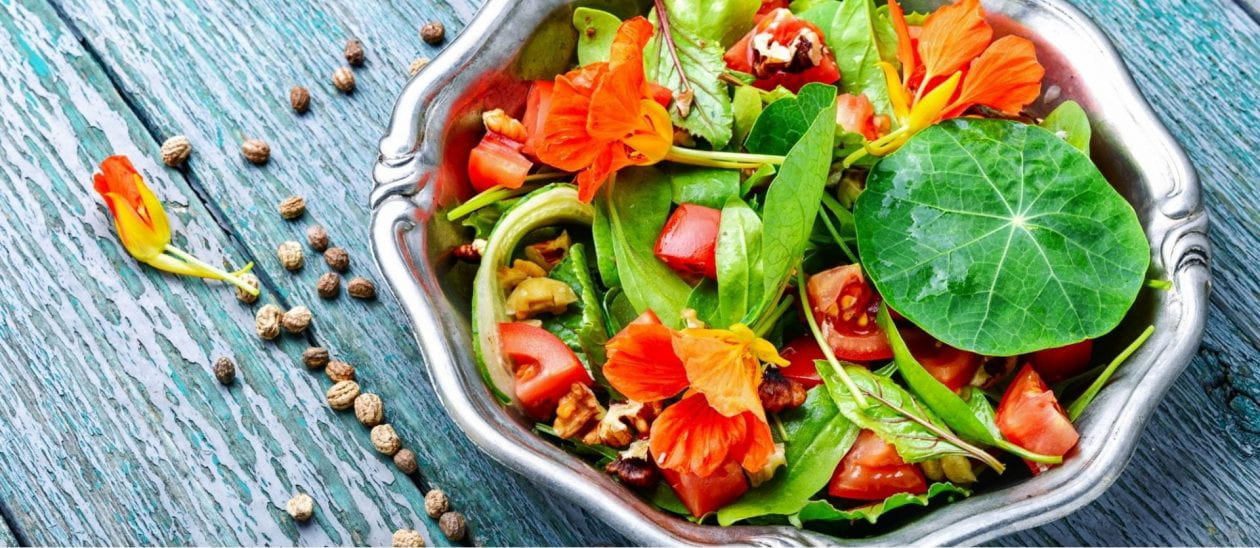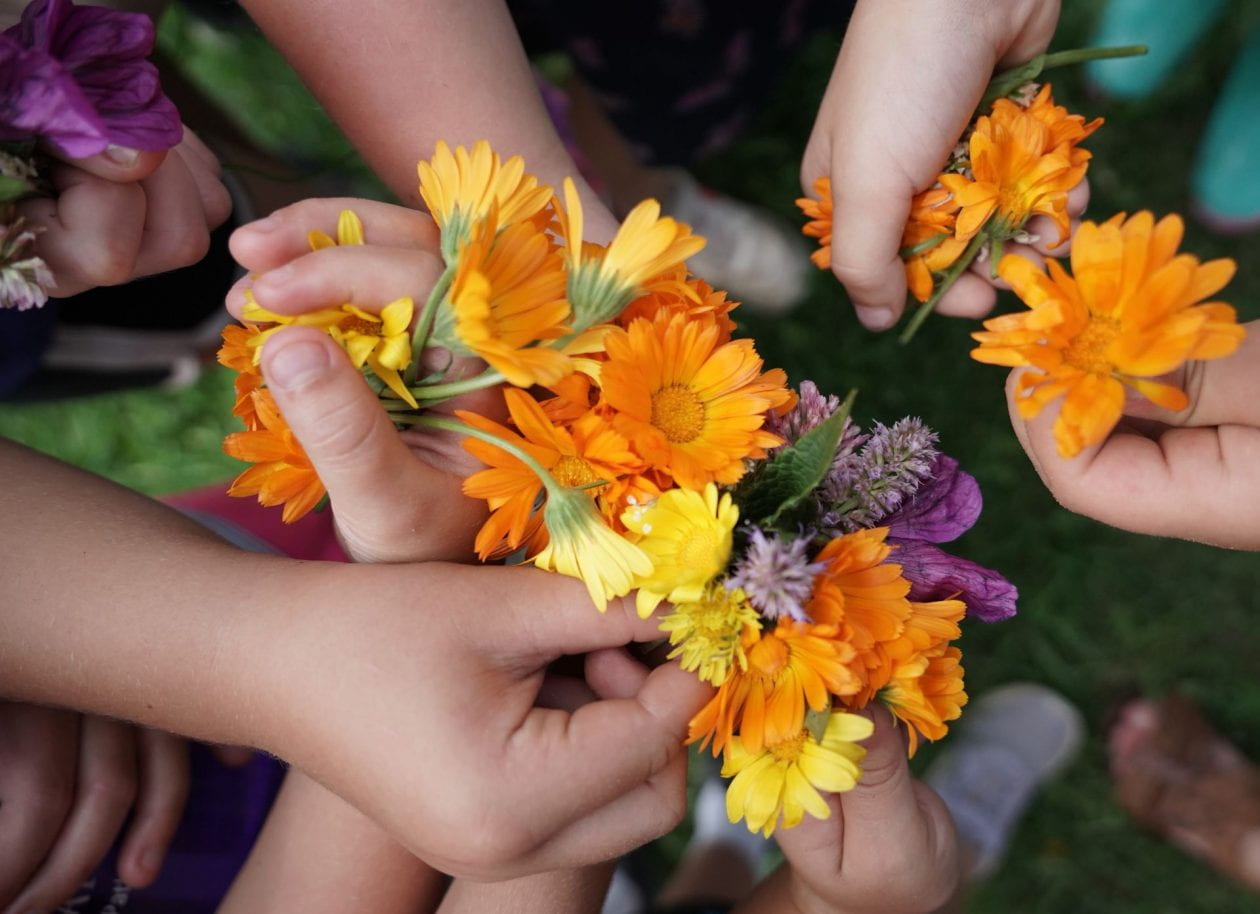Last week, the Farm Day Campers learned about wild edible and medicinal plants during Medieval Week at the Extension Learning Farm. Lessons about Medieval times can favor the 1% – the knights and royalty of that era. While it’s true that armor and castles played a big role, I wanted to talk about peasant farming and about the plants that humans depended on in those times.
The vast majority of people in Medieval Europe were rural peasants living on isolated farms or small villages. For these people, plants held the key to nutrition, healing, and a modicum of hygiene. Without books to consult, or even the ability to read, these peasants shared and handed down knowledge of plants and their uses.
First, I set the stage. Imagine there are no grocery stores with their coolers and fridges and endless packages of the same products year-round. There are no hospitals, or drugstores, no antibiotics. Imagine there are no showers, toothpaste, deodorant, bug spray, sunscreen, and you often see mice and rats in the fields and even your living quarters. Imagine you need to store food for winter without canning jars, or freezers. Your garden and your knowledge of wild plants is essential for survival.
You’re a peasant, one of the lucky ones who hasn’t fallen victim to the plague that killed 35 million people. You can’t read or write so you have to learn all you can from others and remember it. You tend a kitchen garden for vegetables and herbs and an infirmary garden for plants used in medicine. You also collect herbs for use in the home as dyes, for tanning leather, deterring vermin, and covering up odors. Read more Foraging for edible and medicinal plants during Medieval week at Farm Day Camp




